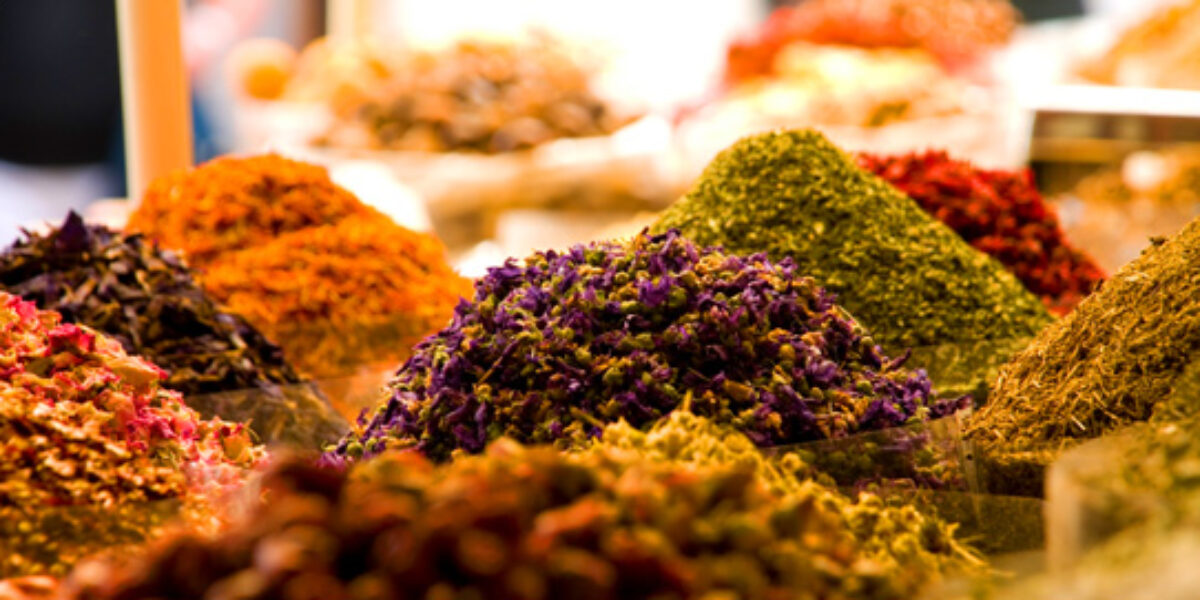The Bible frequently mentions spices and perfumes. Find out what each spice was used for and where it was referenced in the Bible.
In the ancient Near East, most spices were considered to be a valuable luxury (1 Kgs 10.10,25; Ezek 27.17-22), especially those that had to be imported by traders and merchants from lands far away. Spices were used for cooking, for making fragrant incense (Exod 30.34-38), and for making perfumes. Spices added fragrance to oils and ointments used for grooming and for those used in holy ceremonies (Exod 25.6; 30.23-25).
The following chart provides a description of the spices mentioned in Song 4.13,14 and lists some other Bible texts where they are mentioned.
|
Spice |
Description and Use |
Bible Passages |
|---|---|---|
|
Henna |
This small tree has light green spear-shaped leaves, thorny branches, and sweet-smelling flowers. It grows wild in warmer areas of Palestine, such as Jericho and the oasis of En-Gedi (Song 1.14). Its leaves are dried, crushed, and mixed with warm water to make a dye used for coloring fingernails and toenails. Some wealthy women wore little bags filled with fragrant henna flowers around their necks. |
Song 4.13 |
|
Nard |
Also known as spikenard, this plant grows in the Himalayan countries of Bhutan, Nepal, and Kashmir. The fragrant root and lower stems were dried and used in a perfumed ointment. Since perfume made from the nard plant had to be imported to the Near East from India, it was expensive. |
Song 1.12; 4.13; probably also Mark 14.3; John 12.3 |
|
Saffron |
This probably came from the blue-flowered saffron crocus, which may have grown in Palestine in ancient times. Part of the flower was dried and crushed to make a yellow dye used for coloring food, clothing, and walls. It was also mixed with oil and used as a cooking spice, as an ingredient for perfume, and to make medicine. |
Song 4.14 |
|
Calamus |
This probably refers to a fragrant long-stemmed reed or cane that was imported to Palestine. It was used in making the sweet smelling anointing oil (Exod 30.23, “cane”) used by Israel’s holy priests. |
Song 4.14; Isa 43.24, “delicious spices”; Jer 6.20 |
|
Cinnamon |
Cinnamon comes from an evergreen tree that did not grow in the Near East. Its brown inner bark was easily cut and peeled off. Cinnamon had to be imported to the Near East from countries as far away as Ceylon and Malaysia. It was used as a cooking spice, perfume fragrance, and as an ingredient in holy oil. |
Exod 30.23; Prov 7.17; Song 4.14; Rev 18.13 |
|
Frankincense |
This white gummy resin comes from the wood of Boswellia shrubs or trees that grow in India, Somalia, and Arabia. It is uncertain whether they grew in Palestine. Frankincense resin was pounded into a valuable powder that was burned to make a sweet smell. It was an ingredient in various ointments and in the holy incense burned by Israel’s priests. It was also burned along with various sacrifices offered by the priests. |
Exod 30.34-38; Song 4.14; Matt 2.11; Rev 18.13; probably also Lev 6.14,15 |
|
Myrrh |
Myrrh comes from a bush or tree that grows in Arabia and on the coast of East Africa. Some myrrh trees may have grown in Palestine, but most myrrh was imported, making it an expensive luxury. A light-colored sticky substance, or resin, flows from the branches of the myrrh tree. After it is exposed to the air it hardens and turns brown. Myrrh resin was crushed and used in making expensive perfumes and ointments, including the holy oil for dedication and ordination (Exod 30.23-33). Myrrh was also used for embalming the dead (John 19.39). |
Esth 2.12; Ps 45.8; Prov 7.7; Song 1.13; 3.6; 4.6,14; 5.1,5,13; Matt 2.11; probably also Mark 15.23 |
|
Aloes |
Aloes may either refer to the fragrant resin from the tall eaglewood tree that grows in southeast Asia and northern India, or it may refer to the aloe plant, which has thick leaves that form a tight rose shape. Aloe resin has a pleasing smell but it tastes very bitter. Aloes had to be imported from the Near East and were expensive. They were used for making perfumes, medicines, and for embalming the dead. |
Ps 45.8; Prov 7.17; Song 4.14; John 19.39 |




